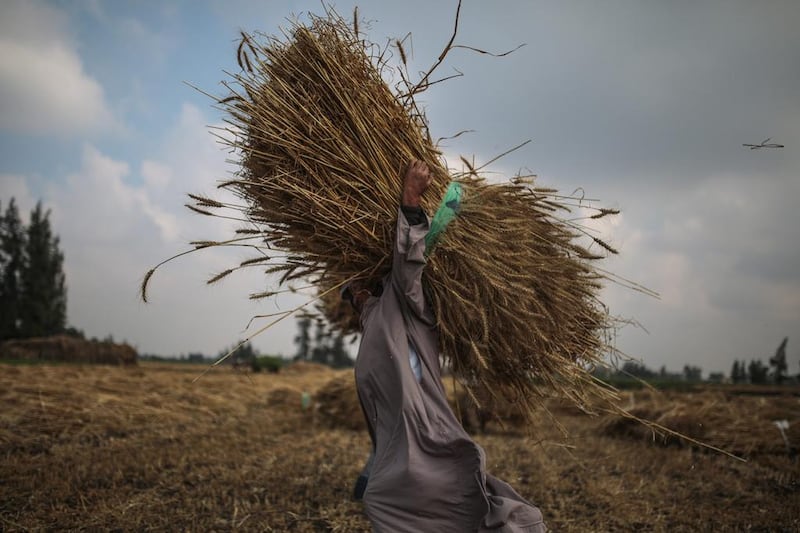SHUBRA KHIT, EGYPT // Lush green farms once stretched all around the Nile River, the fertile dark soil a vital source of life since the Pharaonic times, when ancient Egyptians developed some of the first sophisticated farming methods in the region.
Now, redbrick urban settlements are springing up everywhere, doing away with farmland to make way for the growing population in this country of about 90 million people.
Children still play among banana trees and alfalfa fields as sheep graze nearby and palm trees rustle in the wind – but such pastoral images are being pushed out by an unstoppable sprawl encroaching on the landscape.
Most Egyptians have always lived in the fertile stretch along the Nile, the nation’s breadbasket which accounts for less than 10 per cent of Egypt’s territory. But urban growth has become the chief threat to agricultural land as farmers haphazardly – and illegally – build new houses to make room for the next generation.
Construction surged even more amid a security vacuum that followed the 2011 popular uprising that ousted the country’s long-time autocrat, Hosni Mubarak. Now, building without a permit on agricultural land is a crime punishable by jail or fines – but the construction hasn’t stopped. In the absence of government subsidies and modern machinery, impoverished farmers struggle to make ends meet and feel they have no choice but to build on their own land or sell it off, bit by bit.
Aged and tanned by Egypt’s scorching sun, 49-year-old farmer Hamed Fathi says farmers have no option but to build without permits.
“The government sells lands to businessmen dirt cheap, while we can’t get a few meters to build for our sons,” he says. “What are we supposed to do?”
Scientist Farouk El Baz warned that at this rate, Egypt could lose all of its agricultural land within 180 years. There wouldn’t be a single acre left “to plant on,” he said, and Egyptians will be “dying of hunger, as agricultural land disappears under modern urbanism”.
In 2011, a United Nations report on combating desertification and drought ranked Egypt as the country losing fertile lands faster than any other in the world. Every hour, it said, the country loses around 3.5 feddans (acres) – about 30,000 acres a year.
“Villages are quickly being transformed into high-density urban settlements, without any proper plans for urban expansion or any regulations on building codes,” says Mohamed El Shahed, an architect and the founder of Cairobserver, a blog focusing on Cairo’s development and architecture.
Many of those farmers who sell their land head to big cities in the hope of finding jobs.
“Farming is no longer good enough,” says 55-year-old Abu Islam, standing among his rice paddies, his two children helping him move seedlings. “Everyone has given up on us. I’m waiting for the right customer and price before I sell.”
* Associated Press





